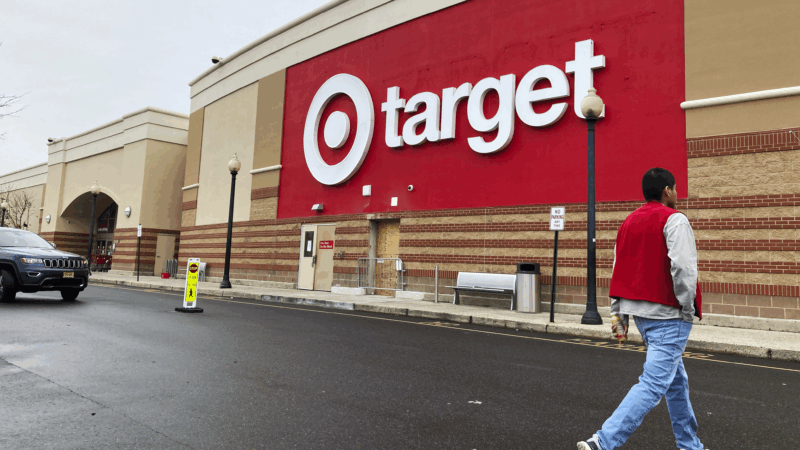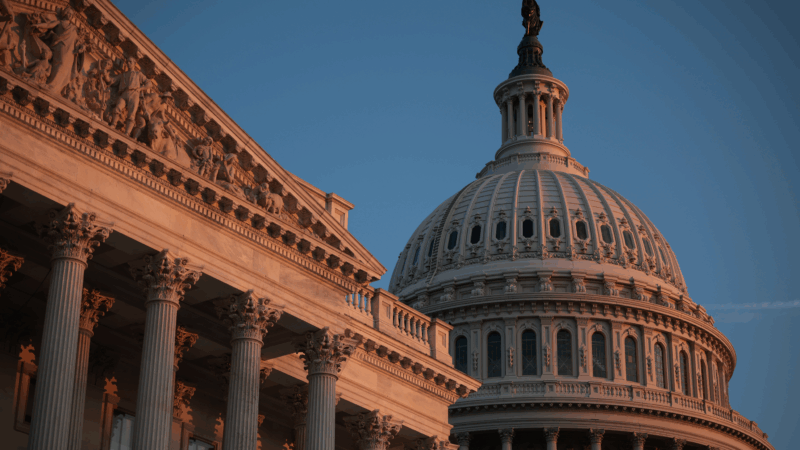Retailers feel pressure to eat the price increases from tariffs
Major American retailers are fighting two battles at once: As they grapple with the costly price impact from President Trump’s sweeping tariffs, companies struggle to talk about that impact publicly without enraging the White House or alienating their customers.
Target on Wednesday became the latest retailer to lower its financial forecast for the year. It downplayed its plans for tariff-related price hikes.
On Tuesday, Home Depot said it doesn’t plan to raise prices broadly because of tariffs — though it acknowledged that some prices might go up and some items might disappear from store shelves altogether.
So far, both have avoided the anger that the president and his administration have bestowed on Walmart, Mattel and, briefly, Amazon.
Although Trump says foreign countries should pay for his tariffs, it’s U.S. businesses that get the tariff bill when they claim their imported goods at the border. Under a current temporary deal, U.S. levies on Chinese imports are 30% instead of the previous 145%. All global imports face a new 10% tariff.
Walmart, the world’s largest retailer, last week warned it will have to raise prices as a result of tariffs, beginning as early as this month. Trump, in a social-media post, wrote that Walmart instead should “EAT THE TARIFFS.”
Walmart and its suppliers are already absorbing some of the costs of tariffs, CEO Doug McMillon has said. But Walmart cannot do that with the full amount “given the magnitude of the tariffs,” he said.
Amazon, too, had faced criticism from the Trump administration after news reports that the retailer might display the costs of new tariffs on its low-cost marketplace called Amazon Haul. The White House called it “hostile and political” before Trump spoke with founder Jeff Bezos on the phone, and Amazon said displaying tariffs was never its plan to begin with.
Shortly after that, Trump threatened to put a 100% tariff on Barbie-maker Mattel after the company said it would raise prices on some toys due to tariffs. “He won’t sell one toy in the United States,” Trump said.
Following all that, Target executives reiterated that the chain was working hard to offset “the vast majority” of the tariffs.
“We have many levers to use in mitigating the impact of tariffs, and price is the very last resort,” Target CEO Brian Cornell told investors on an earnings call on Wednesday. The other levers include negotiating with suppliers, changing up product selection, shifting where items come from and reshuffling the timing of orders.
Home Depot executives on Tuesday asserted that the chain wasn’t looking at broad price hikes, but it might raise prices for individual items or switch up some product options if tariff costs prove too high.
PHOTOS: Your car has a lot to say about who you are
Photographer Martin Roemer visited 22 countries — from the U.S. to Senegal to India — to show how our identities are connected to our mode of transportation.
Looking for life purpose? Start with building social ties
Research shows that having a sense of purpose can lower stress levels and boost our mental health. Finding meaning may not have to be an ambitious project.
Danish military evacuates US submariner who needed urgent medical care off Greenland
Denmark's military says its arctic command forces evacuated a crew member of a U.S. submarine off the coast of Greenland for urgent medical treatment.
Only a fraction of House seats are competitive. Redistricting is driving that lower
Primary voters in a small number of districts play an outsized role in deciding who wins Congress. The Trump-initiated mid-decade redistricting is driving that number of competitive seats even lower.
Homeland Security suspends TSA PreCheck and Global Entry airport security programs
The U.S. Department of Homeland Security is suspending the TSA PreCheck and Global Entry airport security programs as a partial government shutdown continues.
FCC calls for more ‘patriotic, pro-America’ programming in runup to 250th anniversary
The "Pledge America Campaign" urges broadcasters to focus on programming that highlights "the historic accomplishments of this great nation from our founding through the Trump Administration today."







